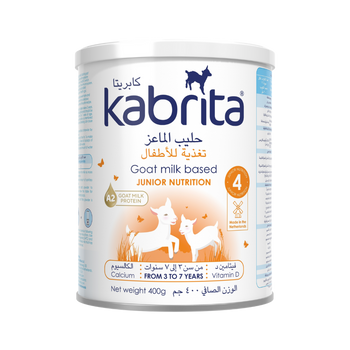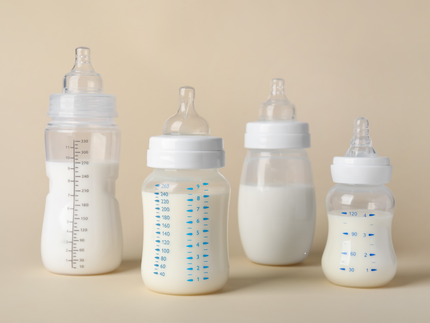Dealing with Colic Baby: All you Need to Know

Having an inconsolable baby who cries for hours on end every day can be very challenging and exhausting. It can make you feel helpless, frustrated, and worried. This is what many parents of colicky babies experience.
Colic is a condition that affects some babies, usually in the first few months of life. It causes them to cry excessively for no apparent reason, often in the evening or at night. Colic can be very stressful and frustrating for parents, but it usually goes away by itself by the time the baby is 4 to 6 months old.
This blog post will cover some information and tips on how to deal with colic babies.
Understanding Colic
Colic is not a disease or a diagnosis, but a term that describes a pattern of crying behavior in otherwise healthy infants.
Colic can be distinguished from other causes of crying or fussiness in babies by its intensity, duration, and timing. Colicky babies may cry so hard that they turn red, clench their fists, arch their backs, or curl their legs.
They may also spit up, burp, or pass gas during or after crying. Colicky crying usually occurs in the late afternoon or evening, and may last for several hours without any obvious trigger or relief. Colicky babies may also have trouble sleeping or feeding during these episodes.
Babies can cry a lot because of gas, reflux, or colic. Gas makes them gassy and crampy, reflux makes them spit up and vomit, and colic makes them cry for no reason.
They can sometimes overlap or be confused with each other, so it is important to consult with your baby’s doctor if you are concerned about any of these conditions.
The doctor can help you identify the possible causes of your baby’s crying and offer some tips and treatments to make your baby more comfortable and happy.
Causes of Colic in Babies
The exact cause of colic is unknown, and it may result from a combination of factors. Some possible causes or contributors to colic include:
- A developing digestive system that is not fully mature or able to handle gas or certain foods.
- An imbalance of healthy bacteria in the gut that affects digestion and mood.
- A food allergy or intolerance to cow’s milk protein, lactose, or other substances in formula or breast milk.
- Overfeeding, underfeeding, or infrequent burping that leads to gas or indigestion.
- A sensitivity to stimulation from light, noise, or activity.
- A developing nervous system that is easily overwhelmed or overstimulated.
- An early form of childhood migraine that causes abdominal pain or headache.
- A temperament that makes the baby more prone to crying or irritability.
- A family history of colic, migraine, or allergies.
- A stressful environment or family situation that affects the baby’s mood.
Signs Your Baby Might Have Colic
If you suspect your baby might have colic, look for these signs:
Crying patterns
- Your baby cries for more than 3 hours a day, more than 3 days a week, for more than 3 weeks.
- The crying is intense, high-pitched, and inconsolable.
- The crying usually starts and ends suddenly, and often occurs at the same time each day.
Difficulty in soothing the baby
- Your baby does not respond to usual methods of comforting, such as rocking, cuddling, feeding, changing diapers, or singing.
- Your baby may seem to prefer being left alone or being held in a certain position.
- Has a hard time settling down or relaxing, even when the crying stops.
Changes in feeding and sleeping habits
- Your baby may have trouble feeding during colicky episodes, either refusing to eat or eating too much.
- Your baby may also have trouble sleeping or staying asleep during these episodes.
- Has more gas or bloating than usual, which may cause discomfort or pain.
If you notice any of these signs in your baby, you may experience thoughts along the lines of “does my baby have colic” or whether there is something else wrong with them. It would be wise to consult your doctor if you are concerned about your baby’s crying or if they have other symptoms or signs of illness or injury.

How to Deal with a Colic Baby?
There is no one solution for colic, and different babies may respond differently to various methods of soothing. You may need to try different strategies until you find what works best for your baby and yourself. Some tips for dealing with colic baby include:
Feeding Techniques
- If breastfeeding, watch what you eat and drink. Some foods or drinks may bother your baby’s tummy or cause allergies.
- If formula-feeding, try changing the type of formula. Some babies may react to milk protein or lactose in formula. Try Kabrita goat milk formula, it is easy to digest, mild, and has less lactose and more probiotics than conventional milk, which can help support your baby’s gut health and immune system.
- Feed your baby smaller amounts more often and burp them well. This can help prevent gas, indigestion or reflux.
- Avoid feeding your baby too fast or too slow. Use a slow-flow nipple that matches your baby’s sucking speed. This can help prevent air from getting into the bottle and your baby’s mouth.
- Avoid feeding your baby right before bedtime to prevent reflux or indigestion that may interfere with their sleep.

Soothing Techniques
- Hold, cuddle, or skin-to-skin your baby to make them feel secure.
- Rock, sway, or bounce your baby to calm them with gentle motion.
- Swaddle your baby in a blanket to make them feel cozy and prevent startling.
- Massage your baby with gentle strokes to relax their muscles and release endorphins.
- Sing or talk softly to your baby to connect with them with your voice.
- Play soothing sounds for your baby, such as heartbeat, white noise, or soft music.
- Dim the lights and limit other stimulation to create a calm and quiet environment for your baby.
Managing Sleep
- Help your baby establish a regular sleep routine with consistent bedtime and naptime.
- Help your baby differentiate between day and night with natural light and normal sounds and activities during the day and dark and quiet during the night.
- Help your baby sleep in a comfortable position by elevating the head of the crib mattress if they have gas or reflux.
- Help your baby fall asleep on their own by putting them down when they are drowsy but still awake.
When Does Colic End?
Colic usually improves spontaneously with time, as the baby’s digestive and nervous systems mature and they adapt to their environment. Colic typically starts when the baby is around 2 to 4 weeks old and peaks at around 6 weeks of age. Most babies outgrow colic by the time they are 3 to 4 months old, but some may continue to have colicky episodes until they are 6 months old. The presumptive diagnosis of colic is confirmed after it resolves.
The duration and severity of colic may vary depending on the individual baby and the underlying cause of colic. Therefore, there is no definitive answer to how long colic lasts in babies, but it is usually a temporary phase that will pass eventually.
As your baby’s colic improves, you will notice many positive changes in your baby’s behavior and mood. Your baby will cry less often and for shorter periods of time, making it easier for you to soothe and comfort them. Your baby will be more calm and relaxed during the day and night, which will help them sleep better and longer. Your baby will also feed better and have fewer problems with gas or reflux, which will improve their digestion and nutrition. Most importantly, your baby will smile and coo more and show more interest in their surroundings, which will make you feel happy and proud as a parent.
When to Seek Help?
Although colic is usually a benign and self-limited condition that does not require medical treatment, it is advisable to consult a doctor if:
- The baby’s crying is unusually excessive and completely inconsolable
- The baby has other symptoms or signs of illness or injury, such as fever, rash, vomiting, diarrhea, blood in stool or urine, weight loss, dehydration, lethargy, seizures, or difficulty breathing
- The baby’s crying interferes with their feeding or sleeping
- The baby’s crying affects their growth or development
- The parents or caregivers are unable to cope with the baby’s crying or feel overwhelmed, depressed, anxious, angry, or suicidal
- The parents or caregivers have thoughts of harming themselves or the baby
A doctor can help rule out any serious medical conditions that may cause or contribute to colic. They can also provide advice and guidance on how to manage colic and cope with its effects.
Conclusion
Watching your baby having to tackle this difficult and tiring condition can leave you feeling helpless, angry or even depressed. You are not alone in feeling this way. Many parents of colicky babies go through the same emotions and difficulties so you are not alone. However, never let your anger or impatience get the better of you and make you shake your baby. This can have serious irreversible consequences. Other than this, it should please you to know that Colic doesn’t usually cause any long-term harm to the baby’s health or development.
Try different soothing strategies, such as feeding, burping, holding, rocking, swaddling, playing sounds, or giving a warm bath to your baby. See what works best for your baby and stick to it. If nothing seems to work, remember that it is not your fault and that your baby will eventually outgrow colic. Follow the relevant techniques to deal with colic while you keep your doctor in the loop, and you are sure to overcome this difficult time soon enough.










